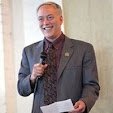December 1st World AIDS Day 2009
December 1st, 2009
Twenty-nine years since the AIDS epidemic began, and tens of millions of people have lost their lives in the United States and around the world. While there has been progress in prolonging lives and in treatment, the disease still infects and kills millions of people each year across the globe. Even though prevention education is our most important defense against AIDS, effective programming and leadership is still inadequate to halt the spread and destruction of this pandemic and we need renewed resources, energy and focus on this serious health threat.
Few of us who began working on AIDS in the early 80’s believed the epidemic would last as long as it has. I remember thinking it would be a passing crisis and that after a few years I would get back to my planned career of community organizing and political advocacy. I had been working in gay rights in Ohio and Michigan but began to focus full time on HIV prevention by 1987 because I was losing so many friends and community members to the disease. More than two decades later we are still fighting for resources and struggling against the stigma and denial that has characterized the struggle since the beginning. There is still no vaccine.
The good news is that science and medicine have developed effective testing techniques and treatments that have cut the death rate drastically. Persons with HIV/AIDS can live full lives.
Transmission from mother to newborns can be eliminated, and we know exactly how to prevent further spread of the virus through safe behavior. The bad news is that nearly 40,000 Americans are newly infected with the virus each year, and the majority of these are teenagers and young adults. Parents, teachers, and political leaders continue to fail our young people by not strongly supporting innovative, comprehensive, evidence based prevention education. Thus each new generation suffers.
Our patchwork health care system does not focus on prevention and health promotion. Our schools are afraid to address issues of sexuality and orientation. Parents may themselves not know how to protect their offspring. Denial keeps too many in the dark.
Unlike most wealthy industrialized nations, the U.S. still has high rates of teen pregnancy, sexually transmitted diseases, and new HIV/AIDS infections. We would never let our kids start driving cars without proper training and getting a driver’s license, but when it comes to sexual behavior, they are usually on their own. We may preach abstinence before marriage, but our culture and media promote a different message. And for gay youth, the message is worse: no education about your risk, and no marriage for you.
We will someday win the battle against AIDS, but only if parents, teachers, coaches, religious and political leaders, and the health industry have the will to do so.

